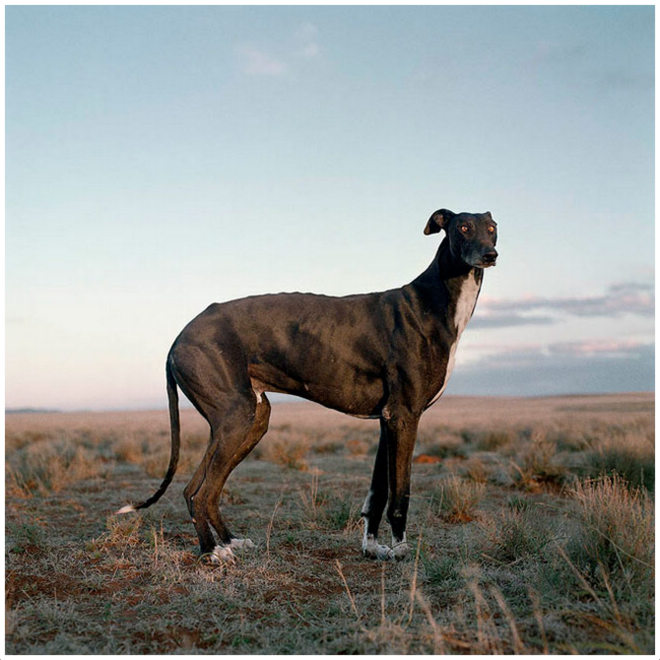Africanis

ALTERNATE NAMES:
- African Dog
- African Hunting Dog
- Bantu Dog
- Hottentot Dog
- Hottentot Hunting Dog
- KhoiKhoi Dog
- Zulu Dog
- Umbwa Wa Ki-Shenzi
STATUS: Extant
GROUP: Working
RECOGNITION: KUSA
COUNTRY OF ORIGIN: South Africa
HISTORY:
The Africanis is one of South Africa’s indigenous breeds of dog. Although it hasn’t been concretely proven, it is widely speculated that the Africanis descends from ancient Egyptian dogs that lived around the Nile nearly 6,000 years ago. The descendants of these dogs were thought to have spread through Africa by following the migration patterns of various tribes. At around the 6th century, they finally reached South Africa, where they proliferated.
The notion of the Africanis being a pariah dog is somewhat awkward, because, throughout their history, they have been closely associated with human settlements. They were (and still are) used to herd livestock, act as a guard dog and help in the hunt.
Recently, efforts have been made to protect and promote the breed and to prevent it from being split into different breeds based solely on regional differences. With this end in mind, The AfriCanis Society was founded in 1998 by Dr. Udo Küsel (formerly the Director of the National Cultural History Museum in South Africa) and John Gallant (writer and dog behaviourist).
TEMPERAMENT:
The Africanis is an extremely loyal breed of dog that bonds closely to its humans. It is generally friendly, playful, affectionate and protective of its home and people. Due to the fact that this breed has traditionally been used to herd and guard livestock it, like our modern Collie breeds, will tend to continue that herding instinct in the home. Don’t be surprised if your Africanis starts to herd their human family.
Due to its natural development by living in harsh conditions, the Africanis has become a hardy breed with a well-tuned survival instinct and a high degree of adaptability. This adaptability means that the Africanis can live in an apartment, but that is not ideal. Ultimately, the best environment for this breed involves having a secure space where they can run freely.
BREED DESCRIPTION:
The Africanis is often considered to be a pariah dog, but that label is a bit awkward since it generally refers to ownerless, free-roaming street dogs. As a landrace, this breed has had only limited human interference, which has allowed it to naturally adapt and change over the years based on its environment and purpose. Like many such dog breeds, the Africanis lacks an official breed standard; nevertheless, it does have regional variations that each have a specific set of physical characteristics and an overall set that applies to the breed as a whole.
The Africanis is a mid-sized dog that is only slightly taller than, for example, the average Shar Pei. Height aside, the Africanis has an overall build that is similar to the Labrador Retriever, in that it is well muscled and has a barrel chest and a waist that is a little slimmer than the chest is at its deepest point. The stop is obvious, but not too pronounced, sloping down into a slender muzzle that is on par with that of a Labrador Retriever. The Africanis normally has a short coat, although a longer coat has been known to happen. The coat can have a wide variety of colours and markings, but the most common are fawn, shades of brown, black, brindle, and any combination of these with white markings. In spite of the wide variety of colours, combined with the lack of a formalized breed standard, the Africanis does breed true to a unified and recognizable form.
One feature that does stand out about the Africanis is that it has a primitive feature that is thought to be a throwback to its wolf ancestors: the presence of a small patch of darker, coarser fur covering the Precaudal Gland near the base of the tail.
AVERAGE HEIGHT/ WEIGHT:
HEIGHT: 20-24”
WEIGHT: 55-100lbs
GROOMING:
As the Africanis is a short haired breed, only a minimal amount of grooming is needed. Weekly brushings and the occasional bath is just fine.
EXERCISE:
This is a high-energy breed. If you are intending to keep your Africanis in a residential area, you should (of course) walk them daily. If you don’t have access to a secure yard, then you will need to make regular trips to a place where your dog can safely run around and play—since socialization is important, a place where there will be other humans and dogs is a good idea. If you do have a yard…you will still need to allow your dog opportunities to play with other dogs and people.
HEALTH PROBLEMS:
Landrace breeds tend to enjoy better overall health than other modern breeds do, owing to having less developmental manipulation in their makeup, and the Africanis is no exception. That said, they can still be susceptible to diseases like Tick-bite Fever, Parvovirus and Distemper.
LIFE EXPECTANCY: 10 to 12 years
POINTS TO CONSIDER BEFORE BUYING:
The Africanis developed in a hot climate, so they are not ideal for places with colder climates.